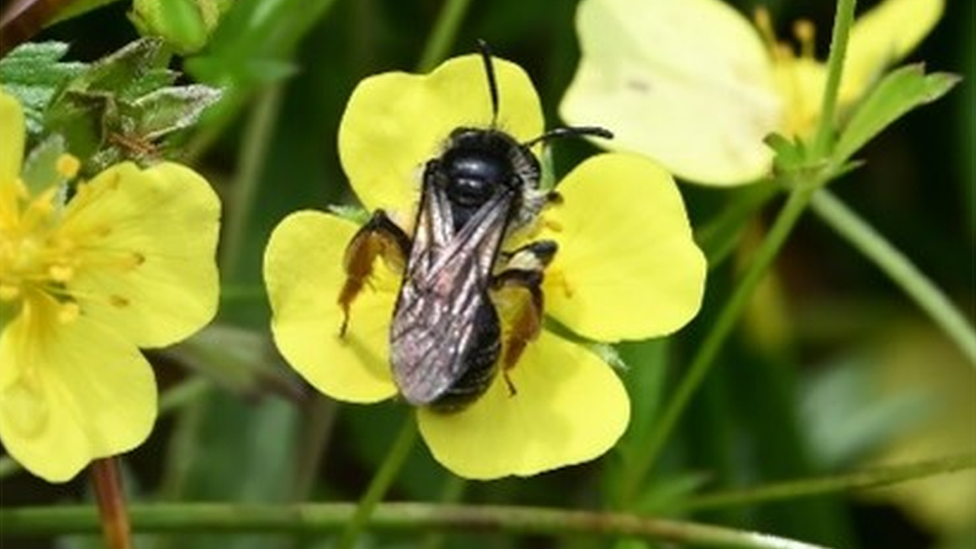Bee 'beaches' in Walsall and Staffordshire help at-risk species
- Published
- comments

The tormentil mining bee was rediscovered at at Chasewater in 2022 and Brownhills Common this year, the council said
Bee "beaches" are to be created across habitats in Staffordshire and the West Midlands to help a threatened species.
The tormentil mining bee was once thought to be locally extinct, but was recently spotted at Brownhills Common and Chasewater, Walsall Council said.
Diggers will be removing vegetation to enable the bees to dig nesting burrows in the fresh soil or "beaches".
The work was a "real opportunity" to save it from becoming extinct, a spokesperson added.
Barr Beacon, Shire Oak, Brownhills Common, Pelsall North Common and Pelsall Middle Common, Chasewater, Muckley Corner and Wharf Lane are the sites that the team are focussing on.
The project is part of the Purple Horizons Nature Recovery Project, co-ordinated by Natural England in collaboration with local councils and nature organisations, which aims to restore historic heathland habitats.
'Former glory'
It is hoped the fresh soil will also enable wasps to nest and provide a suitable habitat for a range of species that use heathlands, such as common lizards, the council said.
The bees feed their young almost exclusively on the pollen of tormentil, a rare wildflower that grows on acidic sandy soils.
Aaron Bhambra, a PhD Student at the University of Birmingham taking part in the project, said: "Although the bee beaches we create will be quite a stark contrast to the surrounding grass and heathland initially, over time the patches of bare earth will allow the heathland to re-establish itself to its former glory."
The council is working with the Canal and River Trust, Lichfield Council and Staffordshire County Council to deliver the works which will take around two weeks.
Councillor Gary Flint, portfolio holder for wellbeing, leisure, and public spaces, said: "The proposed site clearing and scraping works are a crucial part of the project's nature recovery mission and will help to ensure the protection and development of some of our most valued green spaces and the species that inhabit them.
"We must act to protect these green spaces now, so that they can be enjoyed by our communities and wildlife for many years to come. "

Follow BBC West Midlands on Facebook, external, X, external and Instagram, external. Send your story ideas to: newsonline.westmidlands@bbc.co.uk, external